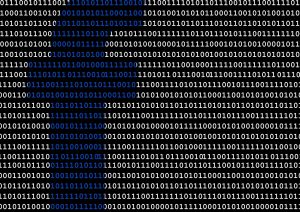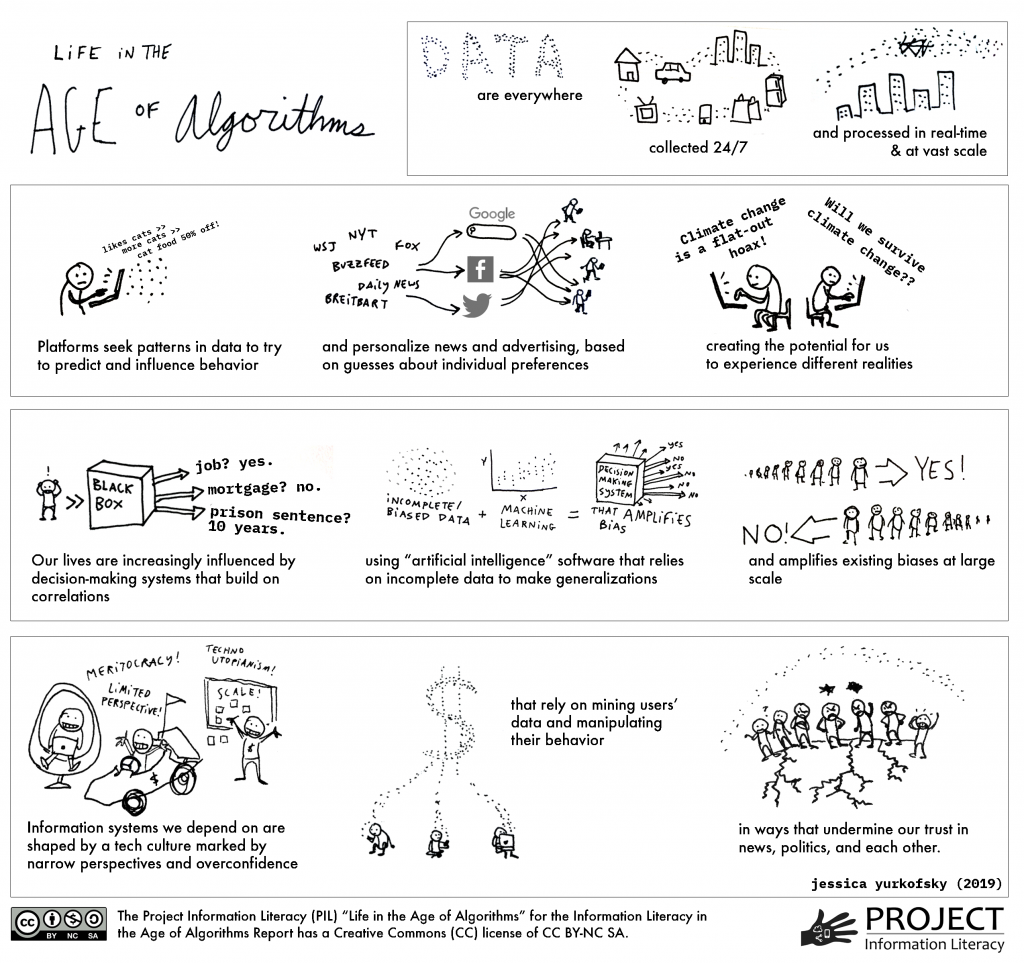4 The Influence of Algorithms

“We live in an era of ambient information. Amidst the daily flood of digital news, memes, opinion, advertising, and propaganda, there is rising concern about how popular platforms, and the algorithms they increasingly employ, may influence our lives, deepen divisions in society, and foment polarization, extremism, and distrust” (Head et al. 1).
Positive & Negative
As companies, governments, and other organizations continue to collect and analyze massive amounts of our data, the use of algorithms has become pervasive. In fact, many are referring to this period as the “Age of Algorithms” or the “Algorithm Era,” and researchers are considering the significant impacts that these tools may have—both positive and negative.
There is no doubt that algorithms can be useful and help to improve our lives. For example, it certainly saves a lot of time and frustration to be able to pull up a map on our phones and instantly determine the fastest way to reach our destination. However, as technology and social media scholar danah boyd has noted, “the same technology can be used to empower people…or harm them. It all depends on who is using the information to what ends” (qtd. in Rainie and Anderson). Eni Mustafaraj, Assistant Professor of Computer Science at Wellesley College, similarly notes that “if we want more people in the world to have access to the total human knowledge accessible on the Internet, we need algorithms. However, what we need to object against are the values driving the companies that own these algorithms” (qtd. in Head et al. 42).
Concerns
What happens when algorithms are used to predict when college students are “cheating” on a test, or to predict who should be hired for a job or who should get a loan, or to decide the type of information we see in our social media newsfeeds, or to calculate credit scores, or even to predict criminal behavior and determine prison sentences? Are Google search results really an unbiased presentation of the best available information on a research question? How do algorithms impact our perception of a research topic, or of our own realities?

One of the most prominent examples in recent history is the Facebook-Cambridge Analytica data scandal, in which the personal profile data of at least 87 million Facebook users was harvested by a political consulting firm working for the Trump campaign. In this case, Cambridge Analytica used algorithms to develop psychographic profiles in order to more effectively direct its messaging and influence voter behavior in the 2016 U.S. Presidential election.
Zoom in or read the text version of the infographic
Sources
Head, Alison J., Barbara Fister, and Margy MacMillan. “Information Literacy in the Age of Algorithms.” Project Information Literacy, 15 Jan. 2020. Licensed under CC BY-NC-SA 4.0
Image: “Big Data is Watching You” by ev is in the Public Domain, CC0
Image: “Facebook Concept Binary” by geralt on Pixabay
Infographic: “Life in the Age of Algorithms” by Jessica Yurkofsky for Project Information Literacy is licensed under CC BY-NC-SA 4.0
Rainie, Lee, and Janna Anderson. “Code Dependent: Pros and Cons of the Algorithm Age.” Pew Research Center, 8 Feb. 2017.


